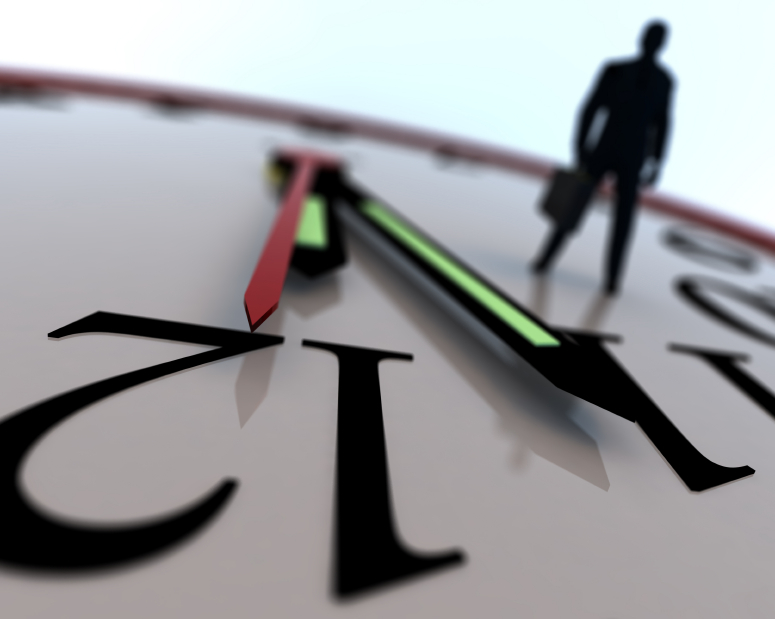In our every day rush of trying to get things done (play on words is not intentional), we seek to constantly improve our efficiency.
We look for all sorts of time saving devices. Whether it’s the latest gadget, new time management approaches, the latest in tools to automate much of what we do, we seem focused on efficiently done.
In the rush to efficiency, we sometimes forget effectiveness.
A bad thing efficiently executed is still a bad thing. We’ve just inflicted it on the recipient much faster, and have the potential to re-inflict it just as easily.
So all our efforts in being ruthlessly efficient, are meaningless unless we are being ruthlessly efficient in the execution of the most effective and impactful processes or activities we undertake.
But we overlook effectiveness too often. Probably because effectiveness is tough stuff. Being efficient is ever so much easier.
Effectiveness means we have to understand, deeply, what we are trying to achieve (we have to know what we are trying to achieve in the first place). It means we have to understand what activities or thing have the most impact in helping us achieve those goals.
To be effective, we have to understand what really works best and why. We have to be fully conscious in being effective–not on autopilot–as we might be when we are efficient. We have to constantly study–understand what drives the customer, how we connect with them in the most impactful way, how we collaborate in constructing value–helping them achieve their goals.
Maximizing our effectiveness is difficult when we are pressed and busy. We are tempted to take the short cuts. We don’t invest the time in research, planning, we don’t take time to think and analyze. We don’t take time to listen and engage.
Maximizing our effectiveness, means we and our customers have to sometimes take the time to Sit With The Problem. This is uncomfortable, particularly for sales people, because we are conditioned to take action. But being effective trains us to determine and execute the right actions.
Effectiveness means we must constantly be paying attention. But busyness fights that–it takes too much time to pay attention.
Once we have mastered effectiveness, then we look at doing it in as little time as possible. We might leverage tools and techniques to support us. We can look at how we might systematize those practices that make us most effective.
Effectiveness and efficiency are a powerful combination–but in that order.

Dave well said. I could not agree more with you. However this argument does not work in all languages. In French, for example, both, efficiency and effectiveness, can be translated with “efficacité” which is a real struggle when I want to make the point in French.
Christian–the Eskimos have hundreds of words for “snow,” and the French— Oh well, 😉
Being efficient at something that is ineffective or misguided is a waste of efficiency. Weren’t the deck chairs on the Titanic arranged beautifully!
I like the part about sitting with the problem. This is a rule for life everywhere – not just in business. Pain has a purpose. If we just run from or dull the pain, we are missing a great learning and life-changing opportunity.
Great insights Gary! Thanks so much for contributing. Regards, Dave
I agree with sitting on the problem and thinking it through. Often my engineers or the plant metallurgist replies to a answer thinking they got to the root cause of the problem. In reality they are not even close because they have not spent enough time understanding the problem. But due to time pressure and wanting to reply to an 8D, it becomes a paperwork exercise and we all lose on an opportunity of learning and growing.
Lately, I like to pause before answering an 8D and spend the most time on getting the facts.
Enjoy the holiday everyone.
Thanks for the great comment/example Kamal. We need to truly understand the problem so that we implement the right solution. Too often, we don’t–consequently we fail to achieve the results we could.
Thanks David great article.
In my last sales role I inherited a business model and team that lacked both effectiveness and efficiencies. I made a conscious approach to build a plan to improve both through various initiatives. Defining measurements for success in both spaces is critical. When I reflect my strategy was actually to improve the efficiency before focusing on effectiveness based on the pressure of the business to derive a certain level if return on investment. I wonder now would the team and business been more successful long term had the focus been the other way and more time spent managing business expectations? Thanks for the challenging perspective.
Mike, thanks for the comment and reflection. In my experience, the fastest route to results–though it may seem counterintuitive–is to make sure you are doing the right things, the right way. This is really what we mean by effectiveness. Once you have that understood (and often it doesn’t take a lot of time), working on efficiency, or the time required to execute, comes very easily.
Reversed, sometimes drives you to bad results–very quickly.